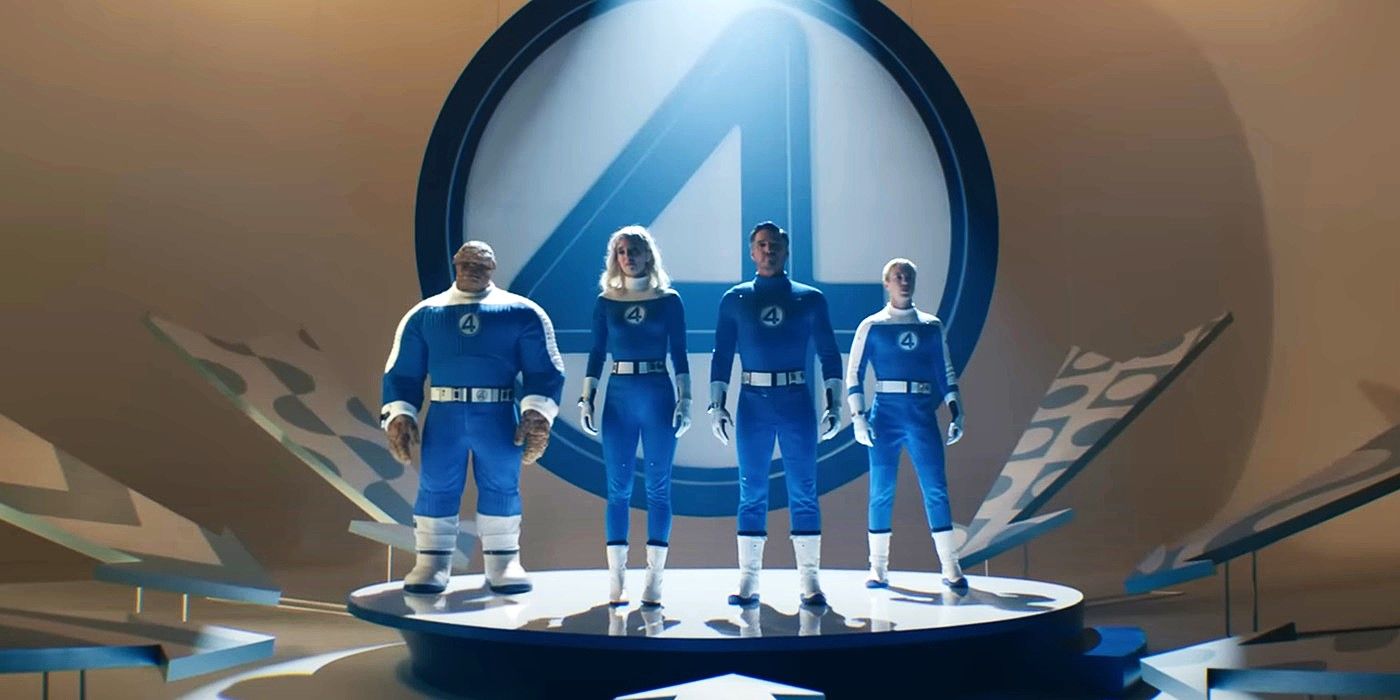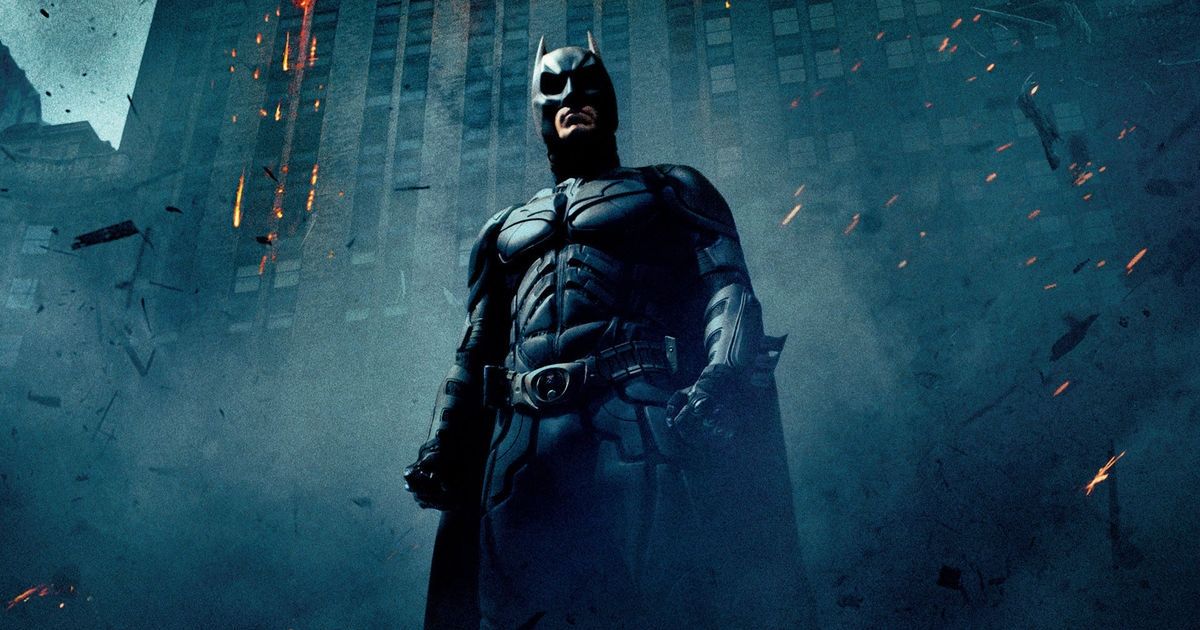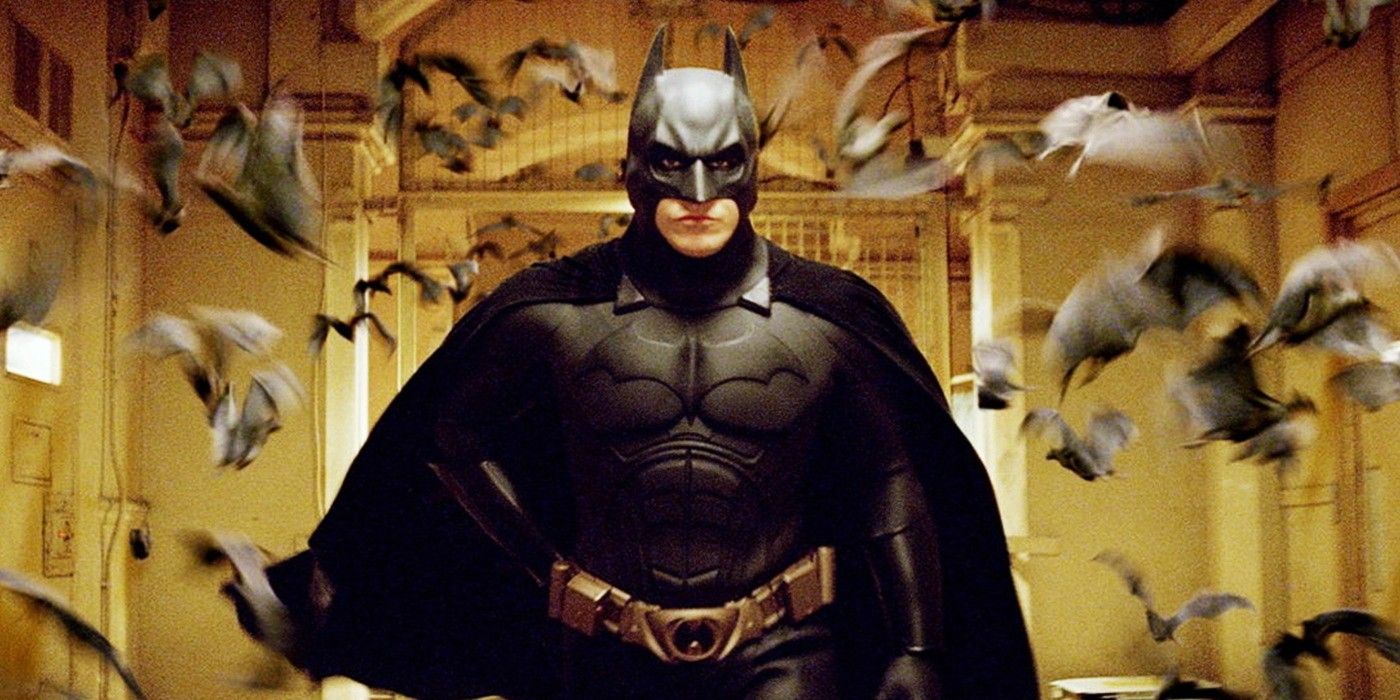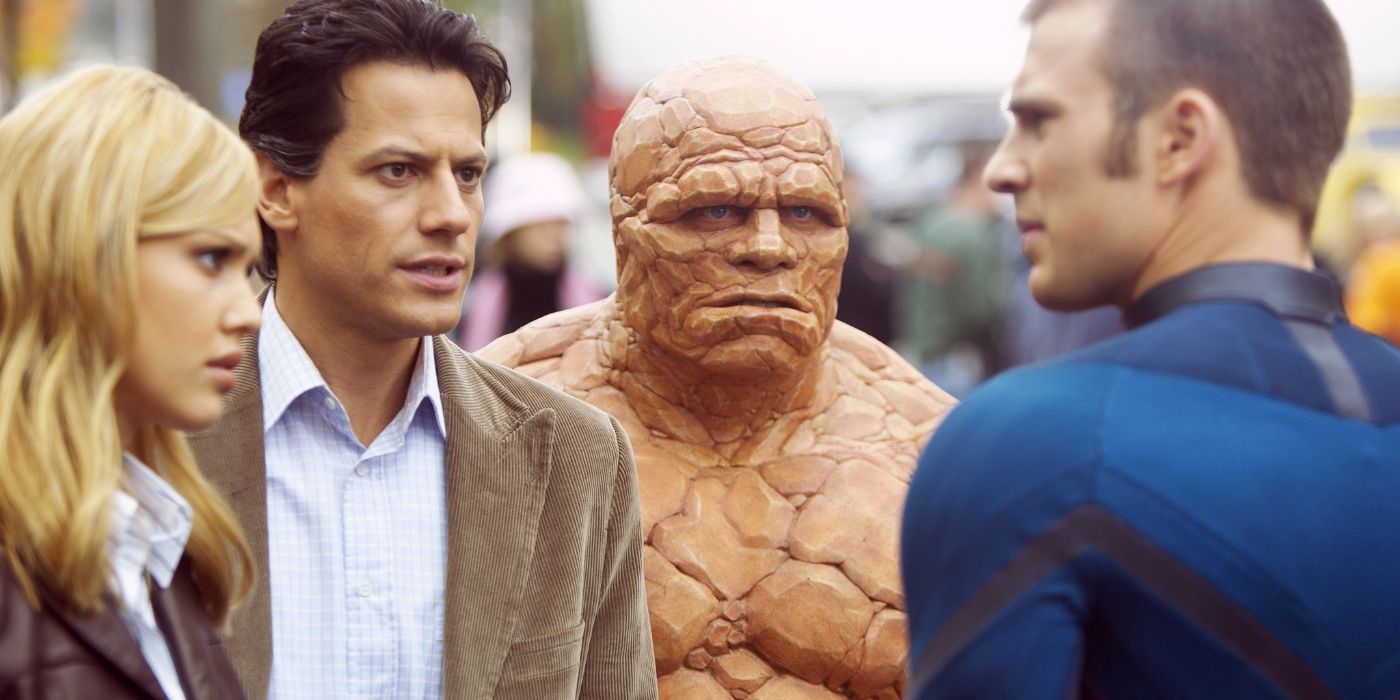2025 marks the ultimate summer movie showdown between DC and Marvel, as Superman and The Fantastic Four: First Steps go head-to-head at the box office. History has a funny way of repeating itself, as 20 years ago, in 2005, a similar showdown happened between Batman Begins and Fantastic Four. While time has certainly been kinder to Batman Begins, as it kicked off the Christopher Nolan Dark Knight trilogy, on the opening weekend of Jul. 8, 2005, Fantastic Four looked like a bigger hit.
Fantastic Four might be largely seen as a misfire in the superhero genre, but when it arrived in theaters, it was a shot in the arm the box office needed. It seemed like the start of a new superhero franchise that would run for years, morphing into one of many takes on The Fantastic Four. For Fantastic Four‘s 20th anniversary, look at how the movie lit the box office on fire, beat Batman Begins initially, and how there is a key lesson to learn about box office reporting and what defines success from this 20-year-old Marvel superhero movie.
Great Expectations for ‘Batman’ vs. New ‘Fantastic Four’
Fantastic Four opened on Jul. 8, 2005, during the post-Independence Day weekend and earned an impressive $56 million in its first three days. That might not seem like a lot of money when compared to modern superhero movies. Yet, in 2005, that was a significant number, and notably the fifth-largest opening for a live-action superhero movie of all time, behind Spider-Man ($114.8 million), Spider-Man 2 ($88.1 million), X2: X-Men United ($85.5 million), and Hulk ($62.1 million).
Earlier that same summer, Batman Begins opened to $48.7 million (although it debuted on a Wednesday, so its five-day weekend total was $72.8 million). While the critical reaction to Batman Begins was highly positive, a significant rebound from the franchise’s low point, Batman & Robin, some residual trepidation from the prior film still kept audiences from rushing out on opening weekend. Many industry analysts at the time expressed disappointment with Batman Begins‘ opening weekend, as it fell short of the record-shattering openings the franchise was accustomed to. This initially made Batman Begins appear to be a disappointment.
Meanwhile, Fantastic Four had a lot of positive buzz to build on. Despite largely negative reviews, the movie did break out with audiences. Part of it was Fantastic Four being able to sell itself as a lighter summer movie than many of its competitors. This was the summer that Star Wars had its first PG-13 entry that included child murder and a human body burning. Batman Begins and War of the Worlds were darker, adult-oriented blockbusters that had a serious tone, invoking then-current fears of the War on Terror. Fantastic Four, on the other hand, sold itself as a lighthearted, all-ages film that kids and adults could see together. The comedic elements felt akin to those of other high-concept summer comedies, such as Ghostbusters or Men in Black. This initially painted a more positive perception of Fantastic Four, though by the end of the summer, Batman would demonstrate its true staying power.

Related
How ‘The Fantastic Four: First Steps’ Will Be Different From the Previous Film Versions
The MCU’s Fantastic Four looks to stand out from the previous live-action films to win over audiences who might be hesitant to see their new film.
Here is a breakdown of the superhero movie opening weekends since Blade kicked off the new era in 1998 up until Jul. 8, 2005, with the release of Fantastic Four.
|
Title |
Opening Weekend |
Release Date |
|
Spider-Man |
$114.8 million |
May 3, 2002 |
|
Spider-Man 2 |
$88.1 million |
Jun. 30, 2004 |
|
X2: X-Men United |
$85.5 million |
May 2, 2003 |
|
Hulk |
$62.1 million |
Jun. 20, 2004 |
|
Fantastic Four |
$56 million |
Jul. 8, 2005 |
|
X-Men |
$54.4 million |
Jul. 14, 2004 |
|
Batman Begins |
$48.7 million |
Jun. 15, 2004 |
|
Daredevil |
$40.3 million |
Feb. 14, 2003 |
|
Blade II |
$32 million |
Mar. 22, 2002 |
|
Constantine |
$29.7 million |
Feb. 18, 2005 |
|
Blade |
$17 million |
Aug. 21, 1998 |
|
Catwoman |
$16.7 million |
Jul. 23, 2004 |
|
Blade: Trinity |
$16.1 million |
Dec. 8, 2004 |
|
The Punisher |
$14 million |
Apr. 16, 2004 |
|
Elektra |
$12 million |
Jan. 14, 2005 |
Opening Weekend Isn’t the End of the Story
(Even If We Still Treat It Like It Is)
In the long run, Batman Begins did outperform Fantastic Four. Thanks to strong word of mouth, Batman Begins had a stronger hold in its subsequent weeks and performed better domestically than Fantastic Four, although Marvel’s First Family had a bit more appeal overseas. Their worldwide totals had Batman Begins $41.8 million apart. Notably, however, Fantastic Four reportedly cost $50 million less than Batman Begins, whose production budget was $150 million, compared to Fantastic Four‘s $100 million.
|
Fantastic Four |
Batman Begins |
|
|
Domestic Box Office |
$154,696,080 |
$206,863,479 |
|
International Box Office |
$178,839,854 |
$168,516,083 |
|
Worldwide Box Office |
$333,535,934 |
$375,406,308 |
Ultimately, both movies were successful. Both received sequels, though the stark contrast in Fantastic Four: Rise of the Silver Surfer‘s box office disappointment, whereas The Dark Knight‘s success as one of the highest-grossing movies of all time demonstrated how audience goodwill for each initial entry had grown since their release. Over the years, audiences were certainly kinder to Batman Begins than to Fantastic Four.

Related
10 Hidden Easter Eggs in the Dark Knight Trilogy
Did you spot these hidden details in the Dark Knight Trilogy?
But had one only looked at the opening weekend box office, it would appear that Fantastic Four was the clear winner and Batman Begins was a “disappointment.” In 20 years, fans and some industry analysts haven’t learned a key lesson: opening weekend box office is not the end of the story. Batman Begins‘ modest box office earnings set the stage for a larger sequel to take off, one that likely wouldn’t happen today, as studios and fans have become so obsessed with box office numbers.
Now all eyes are on Superman and The Fantastic Four: First Steps to break some seemingly arbitrary opening weekend record or benchmark to be seen as a hit because if they don’t, they won’t be allowed to grow their audiences before headlines start rolling in. James Gunn has already said Superman doesn’t need to make $700 million to be a hit, but that likely won’t stop the conversation around the film.
‘Fantastic Four’ 20 Years Later
For all the talk about box office, what is the legacy of Fantastic Four after 20 years? In an odd matter of circumstance, every 10 years has seen a new take on the Fantastic Four, as 2015 had Fantastic 4 (often called Fant4stic) while 2025 has The Fantastic Four: First Steps. Fantastic Four and its sequel, 2007’s Rise of the Silver Surfer, are often regarded as low points in the early pre-MCU era of superhero movies. The films are often seen as poor adaptations of the comics, putting even greater pressure on Marvel Studios’ upcoming reboot to get the team right and appeal to mainstream audiences.
Despite low critical reception, the box office in 2005 showed that audiences were interested in these Fantastic Four films. They hold a special enough place in audiences’ hearts that Chris Evans reprised his role as Johnny Storm/The Human Torch in Deadpool and Wolverine. There is some hope that the likes of Jessica Alba, Ioan Gruffudd, or Michael Chiklis could have a multiverse cameo in one of the upcoming Avengers films.
The tragic passing of Doctor Doom actor Julian McMahon, less than a week before Fantastic Four celebrated its 20th anniversary, likely led to the film getting looked back at a little more fondly. Even if Fantastic Four was not the best adaptation of the comics, for many audiences around the world, it was their introduction to the characters of Reed Richards, Susan Storm, Johnny Storm, Ben Grimm, and Victor von Doom. In 2005, The Fantastic Four were on top of the world, and in 2025, it looks like they will be once again.
Source link



















Add Comment